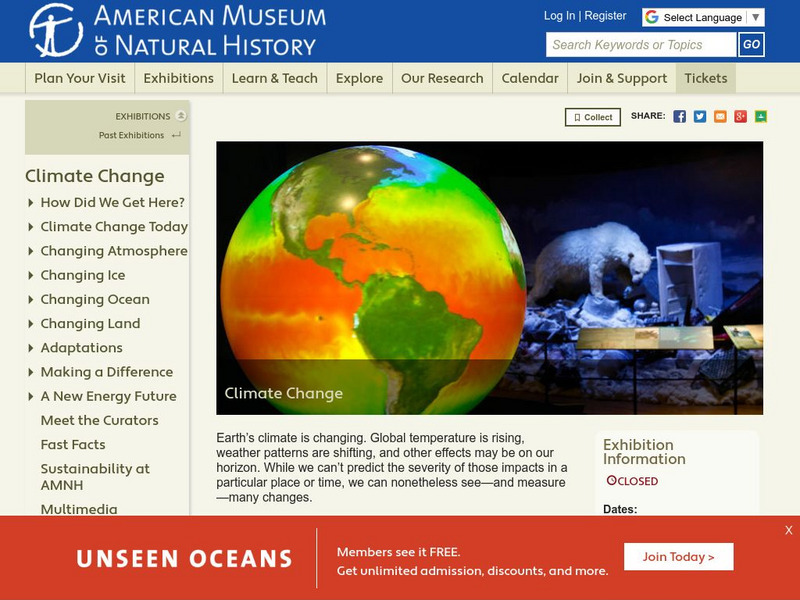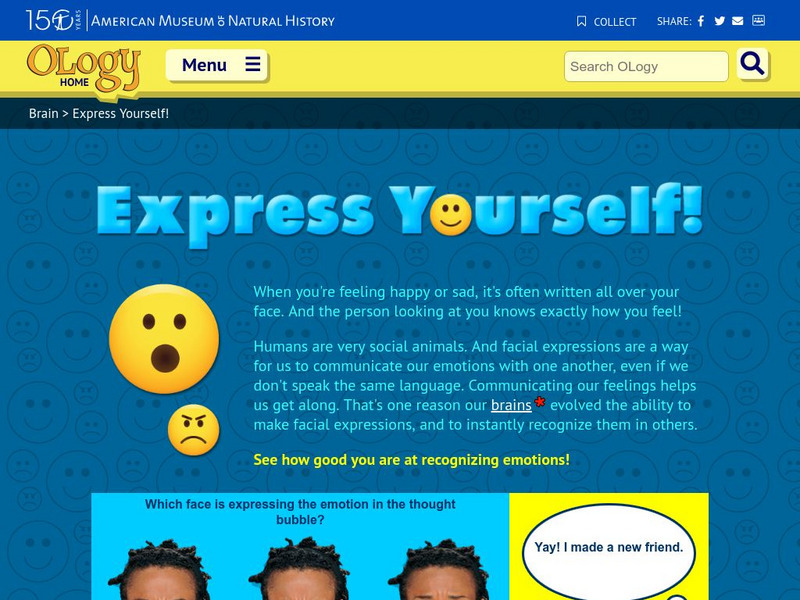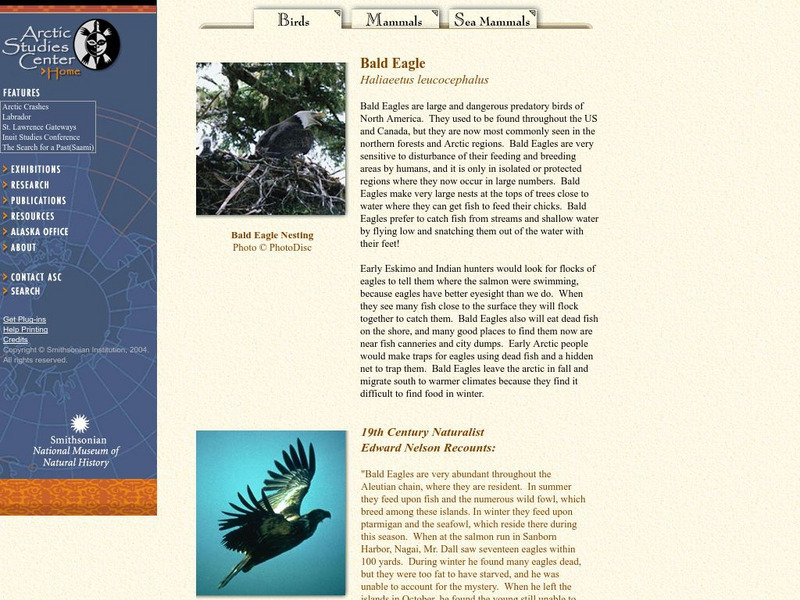American Museum of Natural History
American Museum of Natural History: Create Your Own Time Capsule
By making time capsules, we can decide what message to send to the future about our own lives. If it were discovered years from now, what would the objects say about you and the time you lived in?
American Museum of Natural History
American Museum of Natural History: Optical Illusions and How They Work
What you see and what you think you see are different things. Find out what your brain doing behind-the-scenes!
American Museum of Natural History
American Museum of Natural History: See the Light
Take a look at light with these three easy experiments
American Museum of Natural History
American Museum of Natural History: Trip Up Your Brain
Try this trippy experiment to fool your brain.
American Museum of Natural History
American Museum of Natural History: Crazy Camouflage
Create a flounder fish that's hard to spot. In this hands-on activity, students gather evidence to explore how camouflage helps animals survive.
University of Florida
Florida Museum of Natural History: Animals 1: Fur, Fins, Feathers, and More
This teacher's guide focuses on familiar animals such as mammals, birds, reptiles, amphibians, and fish.
American Museum of Natural History
American Museum of Natural History: Five Tools and Processes for Translating the Ngss Into Instruction and Classroom
The Five Tools and Processes for Translating the NGSS are designed to help professional development leaders work with teachers on curriculum, instruction, and assessment as they achieve this vision. Click the link for each tool for an...
University of Florida
Florida Museum of Natural History: My Body My Senses
This teacher's guide introduces children to the human body and the five senses and covers the major body parts and what they do. Children also will use their five senses to learn about the world.
American Museum of Natural History
American Museum of Natural History: Climate Change
A complete guide to the planet's climate change, including evidence, causes, effects, and conservation efforts.
American Museum of Natural History
American Museum of Natural History: Ology: Express Yourself
Test your skill at reading the emotion expressed in a face in these two matching games.
University of Florida
Florida Museum of Natural History: Physical Science
This guide focuses on four physical science topics that fascinate children and scientists alike. They are motion, magnets, sound, and light. With your guidance and support, these topics provide children with many opportunities to explore...
Read Works
Read Works: Passages: "The Rise of Oxygen in the Earth's Atmosphere"
[Free Registration/Login Required] The article "The Rise of Oxygen in the Earth's Atmosphere" from the American Museum of Natural History focuses on when the rise of oxygen in the earth's atmosphere began. A Step Read, a question set,...
American Museum of Natural History
American Museum of Natural History: O Logy: If Rocks Could Talk
Learn about metamorphic, igneous, and sedimentary rocks and see many examples of each type.
American Museum of Natural History
American Museum of Natural History: O Logy: Arctic Story Puzzles
Construct a story about the Inuit or the polar bear from a series of pictures that can be put together in a sequence.
American Museum of Natural History
American Museum of Natural History: O Logy: Stuff to Do: Start a Rock Collection
Step-by-step details for building a rock collection, beginning with collecting specimens, moving on to observing and sorting rocks, and finishing with displaying the collection. Includes a data table for keeping track of all your...
Smithsonian Institution
National Museum of Natural History: Bald Eagle
This Smithsonian website has a brief but thorough article on the Bald Eagles. Content also includes pictures and an extensive quote from naturalist Edward Nelson as he discusses the role of eagles in Eskimo myth.
San Diego Natural History Museum
San Diego Natural History Museum
This site provides general information, exhibits, museum news, etc. about the San Diego Natural History Museum.
Other
Denver Museum of Nature and Science: Follow a Fossil
Students examine paleontology, the study of ancient life on Earth. Some topics explored are vertebrates, invertebrates, and plants.
University of Florida
Florida Museum of Natural History: History of the Endangered Species Act
The Florida Museum of Natural History offers a review of the rationale for and basic components of the law. There are sections about how one can become involved with the protection and restoration of endangered species.
Smithsonian Institution
National Museum of Natural History: Department of Mineral Sciences Collections
Search the database of the Smithsonian's National Museum of Natural History for gems & minerals, meteorites with images, or petrology & volcanology.
Smithsonian Institution
National Museum of American History: Fishing for a Living: The Salmon Coast
This resource provides information about the Pacific Northwest and the cultures of people who inhabited the area.
Smithsonian Institution
National Museum of Natural History: African Voices: History
Trace Africa's history from the earliest humans to modern times using this thematic timeline. Learn about African trade, religion, empires, and technology. Vibrant pictures are included for each time period showcasing the African culture.
American Museum of Natural History
American Museum of Natural History: Nature Versus Nurture O Logy Card
Flip this interactive OLogy card to find questions and answers, fast facts, and other bite-size pieces of information to help you understand the nature-versus-nurture debate.
American Museum of Natural History
American Museum of Natural History: Dinosaurs: Display or Defense?
Are plates of armor, horns, exceptionally large heads, and bony plates examples of dinosaur display or defense? Visitors to this resource will learn what scientists have concluded about the purpose of these peculiar dinosaur features.
















